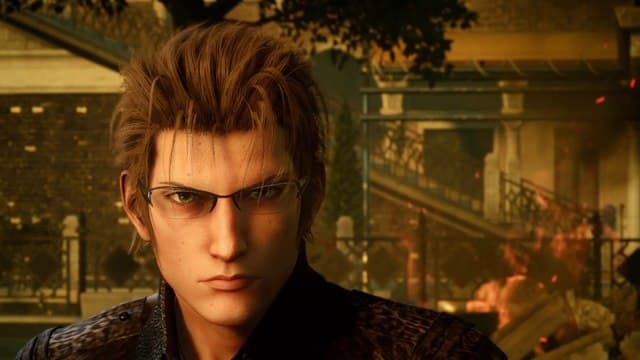This week finds many of us quarantined in our homes, stuck inside with our anxieties for company while cable news and social media whisper alternating streams of apocalyptic nihilism and blustering denial in our ears. We’re missing our friends and partners, our routines, our favorite restaurants and coffee shops. Some of us are coming home fried every day from infrastructure-critical jobs, or jobs our bosses won’t acknowledge aren’t safe to perform anymore. In short, it’s a good time to watch something chill. Over the next few weeks I’ll be compiling themed lists of movies to help pass the time and, hopefully, give us all a little relief from this stew of tedium and terror. I hope you’ll watch along with me.
Porco Rosso, Hayao Miyazaki (1992)
Between Michael Keaton’s soft-spoken voice acting as the titular seaplane pilot Marco “Porco Rosso” Rossolini and the film’s warm, serene animation coupled with its breathtaking sense of aerial motion, watching Porco Rosso is a profoundly freeing experience. The sensual pleasures of Miyazaki’s strange quasi-Italian archipelago wash against the screen without pretense or bluster, culminating in a vision of the afterlife so still, silent, and heartfelt it breaks the entire movie open.

The Conversation, Francis Ford Coppola (1974)
A mumblecore thriller about a lonely, awkward surveillance expert (Gene Hackman) who captures a cryptic conversation about a young couple’s plan to commit murder. Much of the film is occupied by the quiet work of tradecraft as Hackman’s character, Harry Caul, listens and re-listens to recordings and fine-tunes his surveillance equipment. Coppola’s camera work and sound design are fastidious but never artificial, letting the viewer sink into the enveloping sensory experience of Caul’s highly focused but profoundly empty life.

Tinker, Tailor, Soldier, Spy, Tomas Alfredson (2011)
A masterpiece in shades of gray, Alfredson’s adaptation of the beloved le Carré novel of the same name is English spy fiction at its quietest and most reserved. Well-worn suits, drably lived-in rooms, and cold fog swirling over a river in the early morning — the film captures perfectly the liminal nature of a spy’s life, the never-quite-there-ness of the entire enterprise and the ghostly, hard-hearted people it produces. That it revolves around an unspoken love story between two broken men only makes it more poignant.

Big Trouble in Little China, John Carpenter (1986)
An idiot truck driver (Kurt Russell at peak hunkiness) blunders into a centuries-old conflict between factions of Chinese magicians and mistakes himself for its protagonist. Carpenter digs as deep as he can into the ridiculous, pulpy excess of his premise, literally burrowing under its San Francisco Chinatown setting into a world of buried temples and gigantic skull altars populated by myths and monsters. Big Trouble is some of the most satisfying, fast-paced filmmaking in the legendary director’s career.

Close-Up, Abbas Kiarostami (1990)
The strange story of an identity thief in search not of money but of friendship, artistic endeavor, and a sense of belonging. Iran’s master filmmaker cast the real people involved in a similar entanglement to play themselves in this quiet, wandering exploration of where art begins and ends and how we pour ourselves into it and find ourselves by doing so. There is nothing else in cinema quite like Close-Up, itself a conscious blurring of the line between real life and fiction.

Brief Encounter, David Lean (1946)
A love story set in post-war England and doomed from the beginning to end not in catastrophe but in disappointment, Brief Encounter is the story of a housewife and a doctor who meet by chance and fall deeply in love as their country slowly recovers in the wake of the Nazi bombing campaigns. Lean’s camera is breathtaking, his shots of London’s suburbs at night at once Gothic and achingly tender, his close-ups of the lovers’ faces as intimately sad as the monologue in which Laura imagines, knowing it can never happen, telling her husband everything she’s going through.

Miller’s Crossing, Joel and Ethan Coen (1990)
The story of a hard, cruel gangster who either plays both ends against the middle during a vicious war between Irish and Italian crime families or else simply keeps his mouth shut until it’s clear where he should place his chips. The Coen brothers at their least precious, Miller’s Crossing strips the film noir down to its essential component: grim, silent meanness. Its beautiful costuming, expressive faces, and rich colors can’t hide the brutality that is its stock in trade.

Marie Antoinette, Sofia Coppola (2006)
A story about the profoundly ridiculous people placed in charge of the lives and safety of millions of French citizens at the close of the aristocracy’s reign. Kirsten Dunst is by turns coy, silly, pitiable, and infuriating in Sofia Coppola’s sumptuous and tender film in which the beauty of every room, garment, and delicacy reaches such a concentration it begins to putrefy, revealing the spiritual malaise and directionless stupidity that characterize all wealth.

Rope, Alfred Hitchcock (1948)
Artfully stitched together to present as one unbroken take, Rope stays true to its stage origins with its crackling dialogue and endurance test pacing, presenting the story of two wannabe ubermenschen and their hypocritical mentor as a sick game played over the course of an evening get-together at a beautiful New York apartment goes awry and forces them to confront the parts of themselves they least wish to acknowledge.

Barry Lyndon, Stanley Kubrick (1975)
The most beautifully-lit movie ever shot bar none, Barry Lyndon is drenched in daylight, in candlelight, in torchlight with all of its flickering, sumptuous depth and shadow. It, more than any other Kubrick film, is a feast for the senses, a three-hour picaresque wending its way along scenic back roads to a conclusion as ignominious as its opening in which the titular Barry Lyndon’s father loses his life in a duel seen from afar. The sense of diving into its sea of light, music, and period decor is more than worth the journey’s length.


